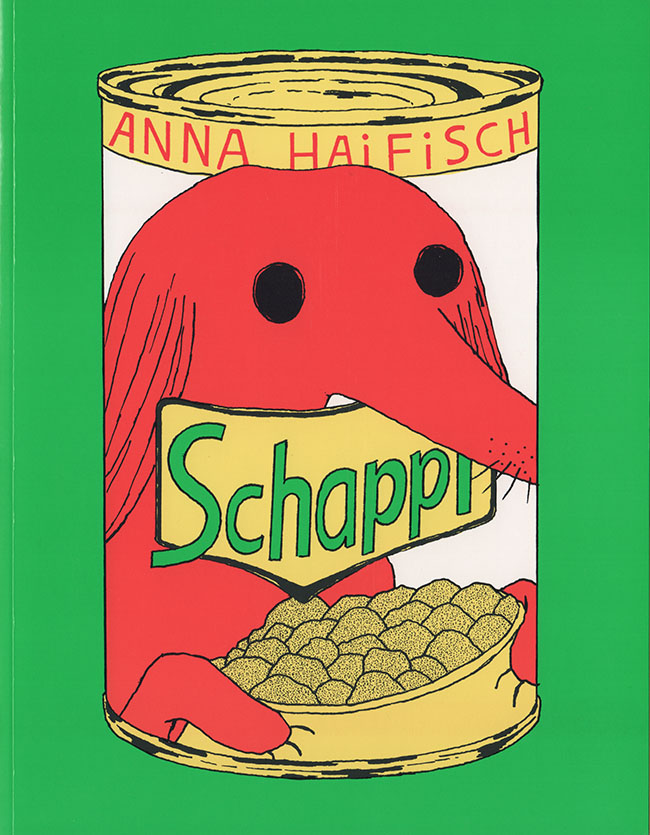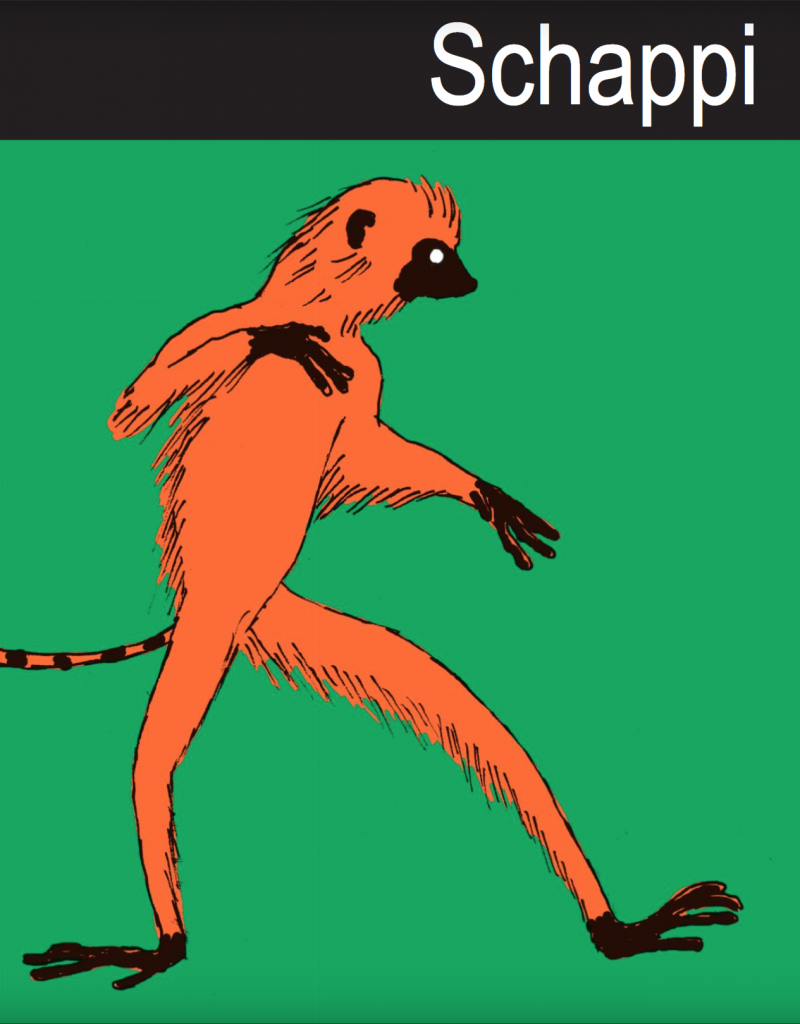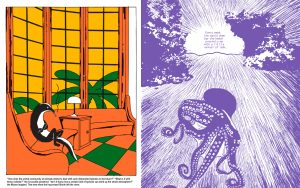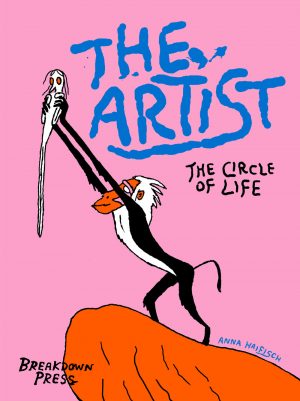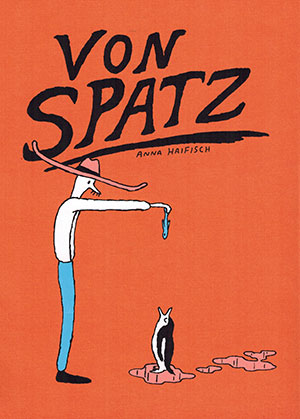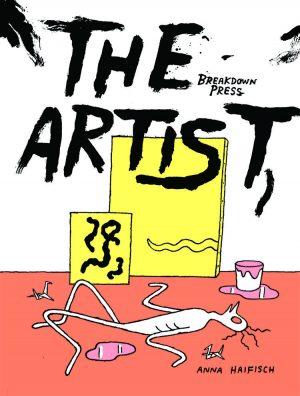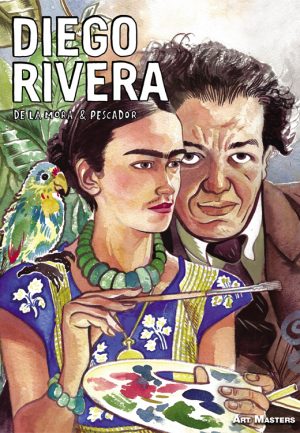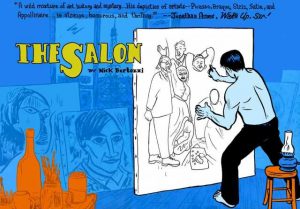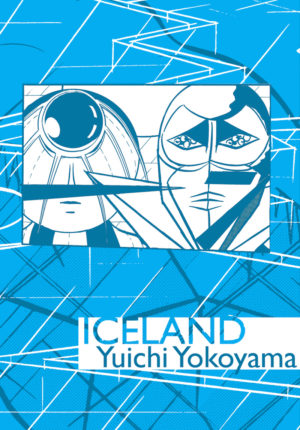Review by Woodrow Phoenix
Anna Haifisch begins this short story collection with a poetic dedication to two whippet-esque dogs, solid in black ink against a yellow background.
“A heart / covered in fur and feathers
A throb / in a meagre chest
A friend / with a beak or snout
At home or far away / Baron Vogelfrei and Prince Schappi”
These two appear nowhere else except on the cover so although the book is named after one of them, what follows are five stories about animals who are not pets, but fully anthropomorphised characters. Three of these short stories have been previously published and the connecting theme is the commodification of art and artists themselves, the disadvantaging of those who make the work for those who profit from it.
‘The Hall of the Bright Carvings’ is loosely based on a chapter from Mervyn Peake’s Gormenghast although it fits Haifisch’s aesthetic so perfectly you would never notice the transplant. It is narrated by a tremendously self-involved and ruthless art collector. She is so rich that artists camp out on a plot of her land down the hill beneath her gallery, living in squalid conditions for the chance to submit their paintings and sculptures for the yearly selection of three pieces to enter her pristine exhibition spaces. “I can hear the artists crying in the distance,” says the collector sunk deep into the sheets of her luxurious four-poster bed. “The sound lulls me into a deep slumber.”
‘The Mouseglass’ is the longest story, featuring a gathering of representatives from all around the world coming together at the 42nd Animal Summit. This meeting of every kind of creature (although no delegates from the marine world get to attend) should engender peace and prosperity among the species. But it soon degenerates into in-fighting, prejudiced and offensive behaviour and even murder in the storybook setting of the Elephants’ province, in a luxurious chateau filled with antique furniture, huge oil paintings and a banqueting hall set in expansive grounds. Haifisch’s beautifully arranged spaces of open flat colour and busy crowded areas of activity have the uncomfortable feeling of Babar the Elephant gone wrong. What meaning do we attach to the completely human-built environment? How far does this metaphor extend?
Similar questions come to mind when encountering the other three stories. ‘A Proud Race’ is classic nature documentary on one level, with strikingly composed, otherworldly images of a flock of ostriches wandering the savannah, but the colours and the commentary make it as tragically funny and mundane as any club night out on the streets of Berlin. Haifisch’s printmaking pedigree really comes to the fore with multiple arresting images making inspired use of her limited colour palettes, extending and intensifying the emotional core under her stories. Overall there is a sense that the cruelty and ruthless exploitation of the powerless by the powerful gets harder to satirise as the machine continues to grind on repetitively, with no likelihood of ever stopping. There is an upswing of hope for the last two stories in this collection of downers, but Schappi tests your glass half-full/half-empty view of the world quite comprehensively.
